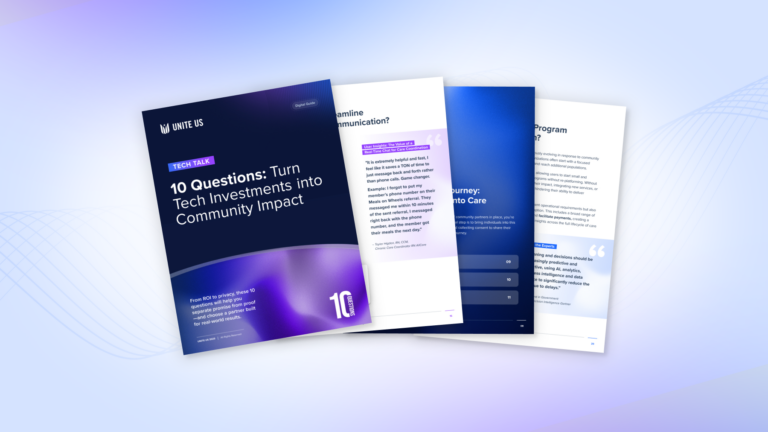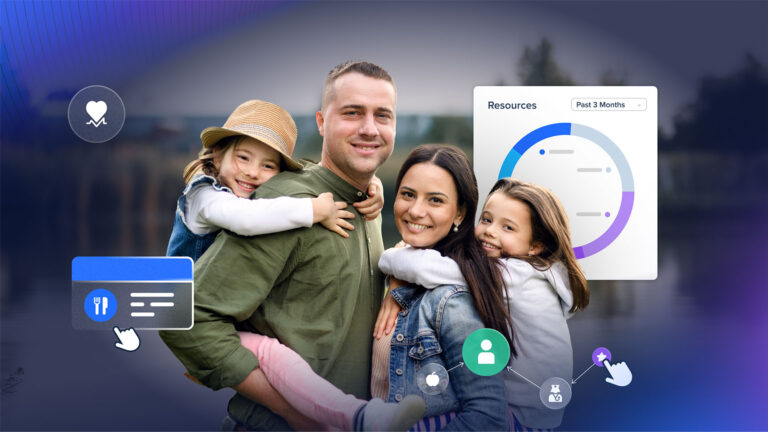
Closing the Loop in My Care Coordination Journey
Molly McAleer
My path to Unite Us has crossed multiple areas of the health care sector but has always been rooted in the fundamentals of public health… more specifically, the desire to impact the health of my community in a positive way. With a graduate degree in public health under my belt, I was seeking an opportunity to immerse myself in the public health landscape in New York City and to address the larger issues in our communities – issues rooted in the social determinants of health. I then found Unite Us, which not only provided me the opportunity to serve as I had hoped but also presented a nuanced approach to care coordination with an outcome-focused perspective on the communities it served.
Before joining the Unite Us team, I got a glimpse into care coordination from a slightly different perspective. While I attended graduate school, I completed an internship in the Patient Experience department at a local hospital in my community. The department was established with consideration to the Value-Based Purchasing Programs, led by the Centers for Medicare and Medicaid Services. More specifically, one of the department’s main foci was on the Hospital Readmission Reduction Program (HRRP), which was centered upon connecting recently discharged individuals to resources in their communities in order to reduce the number of readmissions and unnecessary emergency service utilization. The department sought to find what could’ve improved a patient’s experience while they were admitted, as well as what resources would be most beneficial to offer discharged patients so they could manage their care.
My role in the Patient Experience department was to analyze data gathered from Post Discharge Follow-Up phone calls, which collected information on what resources individuals required to ensure a smooth transition from hospital to home care. Many of these questions focused on the individual’s knowledge of community resources, and whether or not they planned on utilizing them post discharge. Using these responses, I compiled a Community Resource Manual for the department, listing useful community resources catering to physical health needs, social services, and other holistic health services. If and when these services were needed, the department would connect the discharged individual to services closest to them, or those pertinent to their needs.
Although this approach was an asset in terms of linking patients to services in their community, it lacked transparency to their trajectory of care, and whether or not they had a positive outcome from utilizing those services. It also placed most of the responsibility on the patient to manage their own care and navigate their communities for services they were eligible for. In my experience, I felt like we were making strides to solve these issues, but with limited insightinto the resolutions of the patients’ problems.
Unite Us shares a similar mission of connecting individuals to community resources but goes beyond the traditional “referral” method by providing an outcome-focused, personalized approach. This method goes beyond the traditional resource directory to the root of public health issues, addressing all determinants of health and tracking the outcome of each client who receives services. With the emphasis on prevention and outcome, this approach exercises two of the main facets of public health initiatives – creating a robust and overarching method of coordinated care.
One of the main themes at Unite Us and a part of our mission that we pride ourselves on is to “close the loop” on the care that is delivered to our community. This means establishing a sense of transparency in an individual’s care trajectory while emphasizing the importance of determining an outcome in case management. These invaluable aspects of Unite Us set our software apart from many other referral and case management workflows. In my own personal experience, I see the opportunity to be a part of the Unite Us team as “closing the loop” in my own career path by experiencing care coordination in a similar setting – now going one step further to streamline that effort through an innovative technology platform.
To learn more about how Unite Us takes care coordination to the next step:



